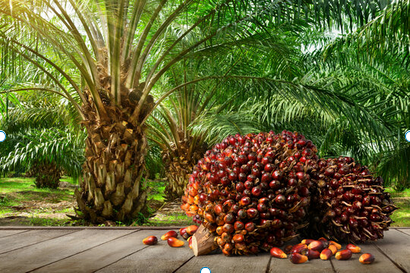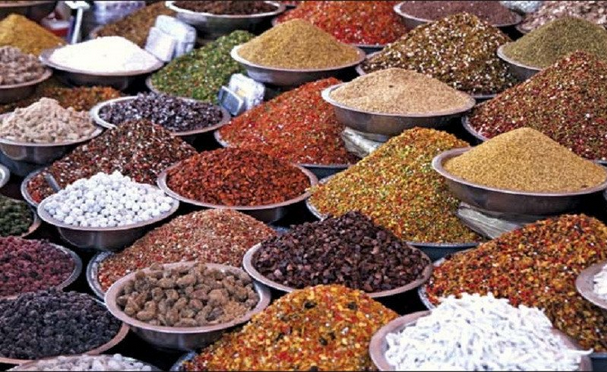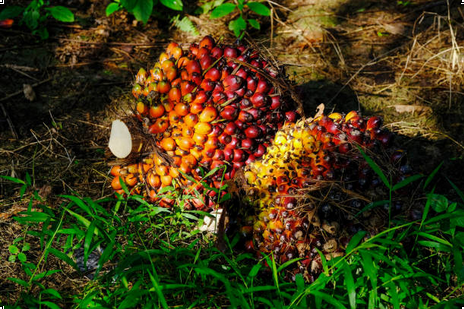
Starting a foodstuff business in Nigeria can be a great opportunity. Despite economic fluctuation, food is something people buy every day, so there’s always a demand, making it a lucrative business for aspiring entrepreneurs.
I recently wrote an article on how you can successfully start your food stuff business to make profit. If this interests you, check it out through this resource link: 7 Proven tips to start a profitable foodstuff business in Nigeria
Having read that, it’s important to know how much it will cost us to start. Knowing the costs will help you plan better and avoid future surprises.
This article is for anyone interested in starting a foodstuff business, whether you’re an entrepreneur, an investor, or a student. I will break down the costs and give you a clear picture of what to expect.
By the end of this article, you will have a good understanding of how much money you will need to get your foodstuff business up and running.
How much can i use to start foodstuff business in Nigeria
When starting a foodstuff business in Nigeria, the initial investment cost you need can vary. It depends on where you set up your business and how big you want it to be. However, I recommend having at least 300,000 naira to start. This should give you a good foundation.
Here’s a simple breakdown of the initial costs:
1. Buying Goods
The largest part of your budget will go to purchasing your initial stock. You need to buy popular food items like rice, beans, and garri to start selling, especially when you are new to the system.
Let’s analyze the current food prices and make an overall initial cost we would need on buying foodstuff items.
Rice → Depending on the brand, a 50kg bag of rice is currently sold between the range of 74,000 Naira to 80,000 Naira depending whether it’s foreign or local. And sometimes, during festive periods, the price can increase drastically.
Let’s budget 160,000 naira for two bags of rice. With this, we are left with 140,000 Naira to spend on buying goods.
Beans → Recently, the price of beans suddenly went up due to the economic crisis in the country. According to punchng, The News Agency of Nigeria (NAN) reports that a 40kg bag of beans, which sold for N26,000 in January, now sells for N115,000, while a 100kg bag which sold for N55,000 at the beginning of the year, now sells for N230,000.
This analysis would definitely make us reduce what we buy or perhaps the quantity of foodstuff to purchase.
Let’s assume we get a half bag of 40kg beans which is sold for 55,250 naira, we would be left with little money to cater for any after foodstuff we needed to buy (such as garri and the others).
However, you can cut this hassle if you have a proper business plan or a state of art list of foodstuff items you want to get.
I have a well explained article on writing a foodstuff business plan. You should check it out through this resource link: foodstuff business plan in PDF
2. Renting or Purchasing Space
You’ll need a place to sell your goods. The cost of renting or buying a shop varies depending on the location. Shops in busy areas cost more, but they also attract more customers.
I have the chance to inspect location based foodstuff businesses, analyze how often they sell, check for competitions and others. And I must confess, your foodstuff business location really plays a vital role in getting your business to the top within a speculated period.
Take for instance, a local foodstuff store located at the base of active geographical locations such as the Island in Lagos, and other parts of the country. However, I am not stating explicitly that you must set up one in these locations.
Here’s the catch, while your business might boom in these locations, the cost of renting one too is very high. So get a location where your budget for a store is achievable. Scan your location, seek for where people find it difficult to access foodstuff easily (maybe at the front of an estate gate or somewhere peculiar and obvious).
3. Equipment
To run your business smoothly, you’ll need some basic equipment. This includes weighing scales, shelves for displaying goods, and storage containers to keep your food items fresh.
Weighing scales are degraded to what we called rubber measurement, congo, rubber paint, derika and more (you get that right?).
Accurate weighing scales are essential for measuring and selling food items and they help ensure that customers receive the correct amount of product and assist in inventory management.
For simplicity, you would buy a storage container which costs about 20,000 naira altogether. These containers should be durable, airtight, and food-safe to prevent contamination and spoilage.
Cost For Permits and Licenses
You might need to get some permits and licenses to operate legally. One common requirement is registering your business with the Corporate Affairs Commission (CAC).
This registration costs a total of 12,000 naira, which includes 10,500 naira for the filing fee and an additional 1,500 naira for bank charges.
This step is important because it officially recognizes your business and can make it easier to access loans and support.
Besides the CAC registration, you might face other charges from the local government. These can include sanitation and environmental fees, which ensure your business meets health and safety standards. These fees can vary, so it’s a good idea to check with your local authorities.
Cost For Marketing and Advertising
Marketing is crucial for attracting customers to your foodstuff business. I recommend setting aside 100,000 naira for marketing and advertising.
Platforms like Facebook, Instagram, and Twitter are great for reaching a large audience. You can create a business page, post pictures of your products, and engage with customers. Paid advertisements on these platforms can also help you target specific groups of people.
You can invest in local advertising by using flyers, posters, and local radio stations to advertise your business within your community. You can distribute flyers in busy areas like markets and bus stops, and put up posters in places where people gather.
You can also offer special deals and discounts to attract customers. For example, you could have a “buy one, get one free” promotion or offer a discount on bulk purchases.
For example, place an offer like this “Buy foodstuff up to 10k and get 500 naira off on your next purchase.” This can help you build a loyal customer base and increase your sales. Note that this strategy must be done with love and caution as this might not work in every sector.
Operational Costs – Salaries
When starting your foodstuff business, think about whether you need to hire employees right away. In the beginning, you might not have the budget to pay for extra help, so it’s okay to run the business on your own or with help from family.
However, as the business grows, hiring employees might become necessary to manage the workload.
For example, if you decide to hire someone, you need to consider the cost. Typically, paying an employee might cost around 20,000 naira per month, which adds up to 240,000 naira per year.
It’s important to budget for this so that you can ensure youer business runs smoothly without straining your finances.
Utilities and Transportation Cost
Running a foodstuff business also means dealing with recurring costs like utilities and transportation. Here’s a detailed explanation:
You might need to pay for electricity to keep your store well-lit and to power any equipment you use. Moving goods from suppliers to your store and possibly delivering them to customers involves transportation costs. For transportation and utilities, you can spend nothing less than 30,000 naira per month.
Cost of Renting a Shop/Store
The location of your shop can significantly affect the rental costs and the success of ypur business. A shop in a busy urban area will usually cost more to rent than one in a rural area. However, being in a high-traffic location can attract more customers and increase sales.
In cities like Lagos or Abuja, rent can range from 50,000 to 150,000 naira per month, depending on the exact location and size of the shop.
On the other hand, renting a shop in a rural area is generally cheaper. The rent might be as low as 20,000 to 50,000 naira per month or even a whole year.
Tips for Choosing the Right Location for the Business
First, you need to know who your potential customers are and where they are located. Setting up your shop in an area where there is high demand for your products will increase your chances of success.
Your shop should be easily accessible to customers. This means considering factors like parking availability, proximity to public transportation, and ease of access for suppliers.
You also need to consider the level of competition around that area. Are there too many people in the same business but not very many customers?
Too many similar businesses in one area can make it hard to stand out. Finding a balance is key.
Finally, make sure the rent fits within your budget so as to balance the cost with the potential revenue it can generate.
Wrapping it up
First, you need at least 200,000 naira for the initial investment. Additionally, registering with the Corporate Affairs Commission (CAC) costs 12,000 naira, and you might also face additional charges for sanitation and environmental permits.
Set aside about 100,000 naira for promotion through social media, local advertising, and special promotions.
Operational costs are another important factor to consider. If you hire employees, the cost can be around 240,000 naira per year per employee. Also, remember to budget for utilities and transportation, which vary based on your location.
Lastly, the cost of renting a shop or store depends heavily on the location. Urban areas generally have higher rents but offer more foot traffic, making it easier to attract customers. In contrast, rural areas are cheaper but may require more effort to draw in customers.
This video would give you a better insight on cost of starting a foodstuff business in Nigeria:



